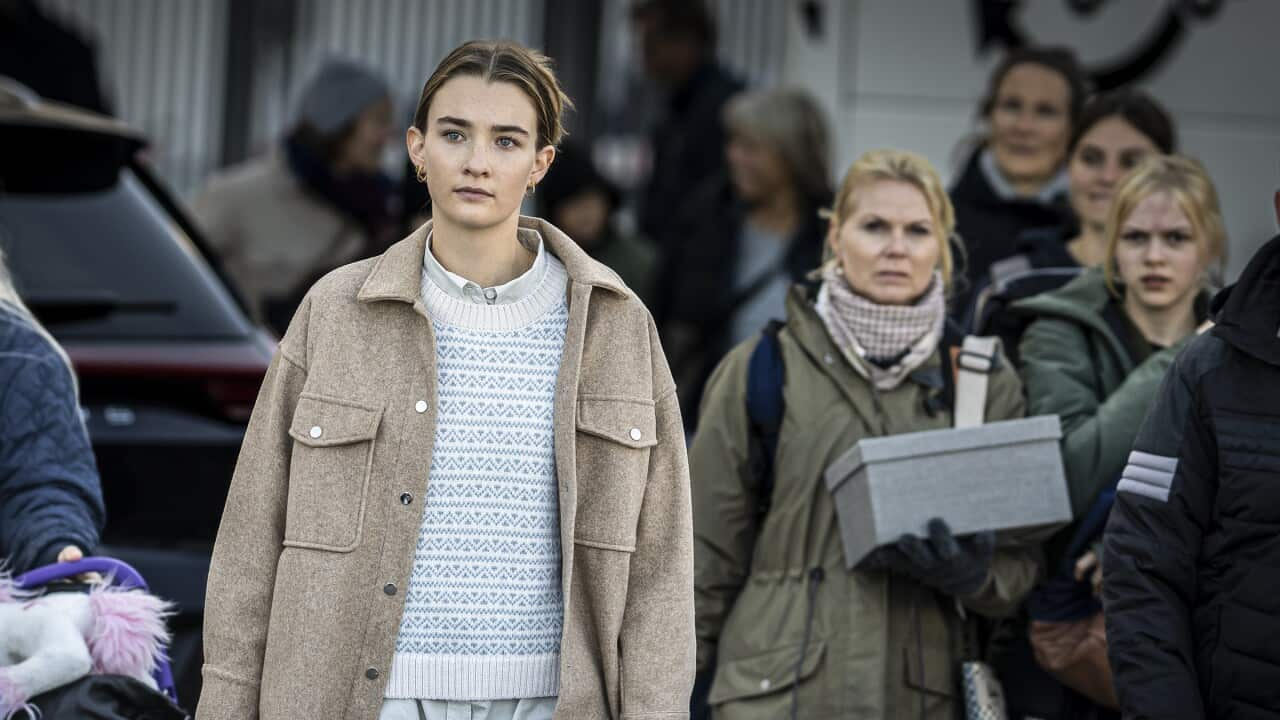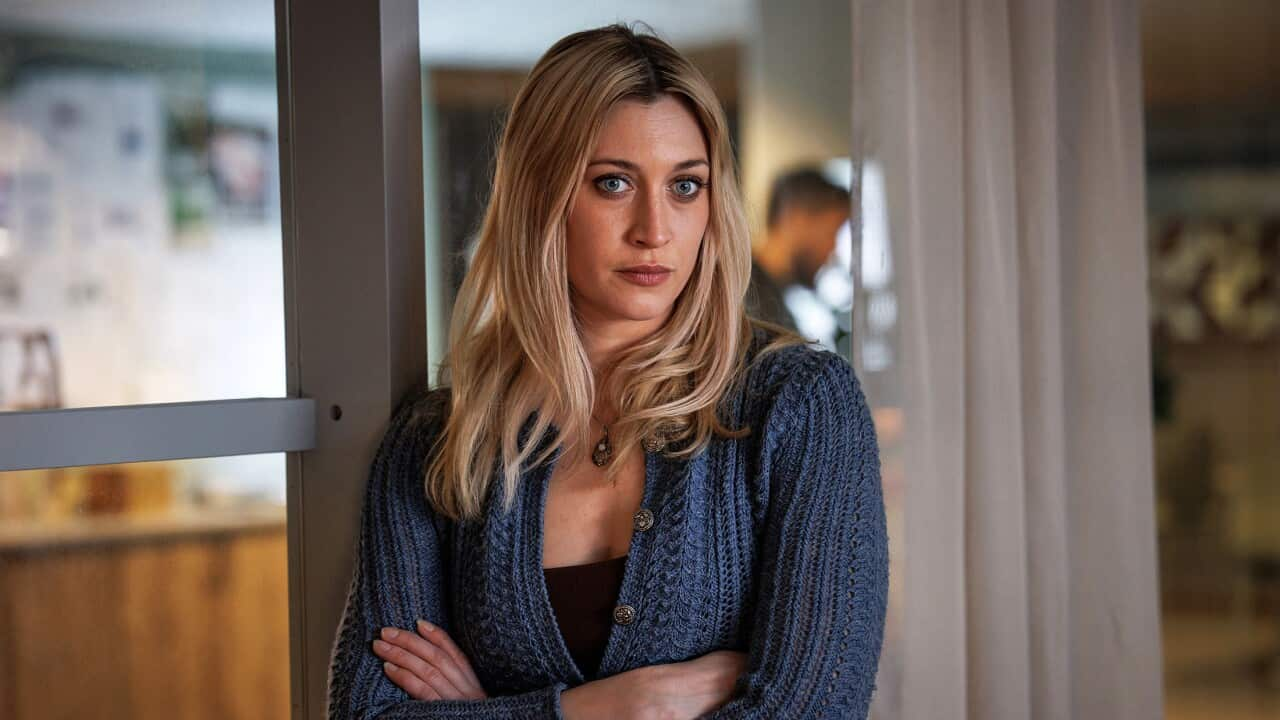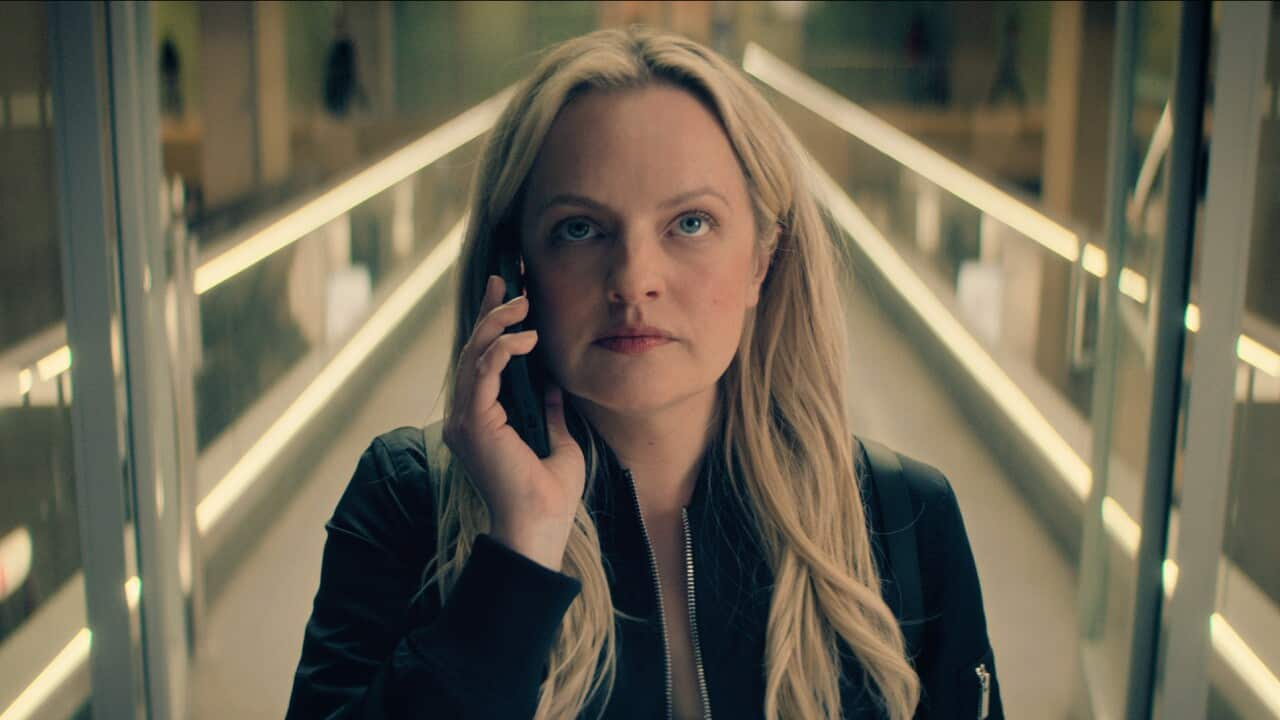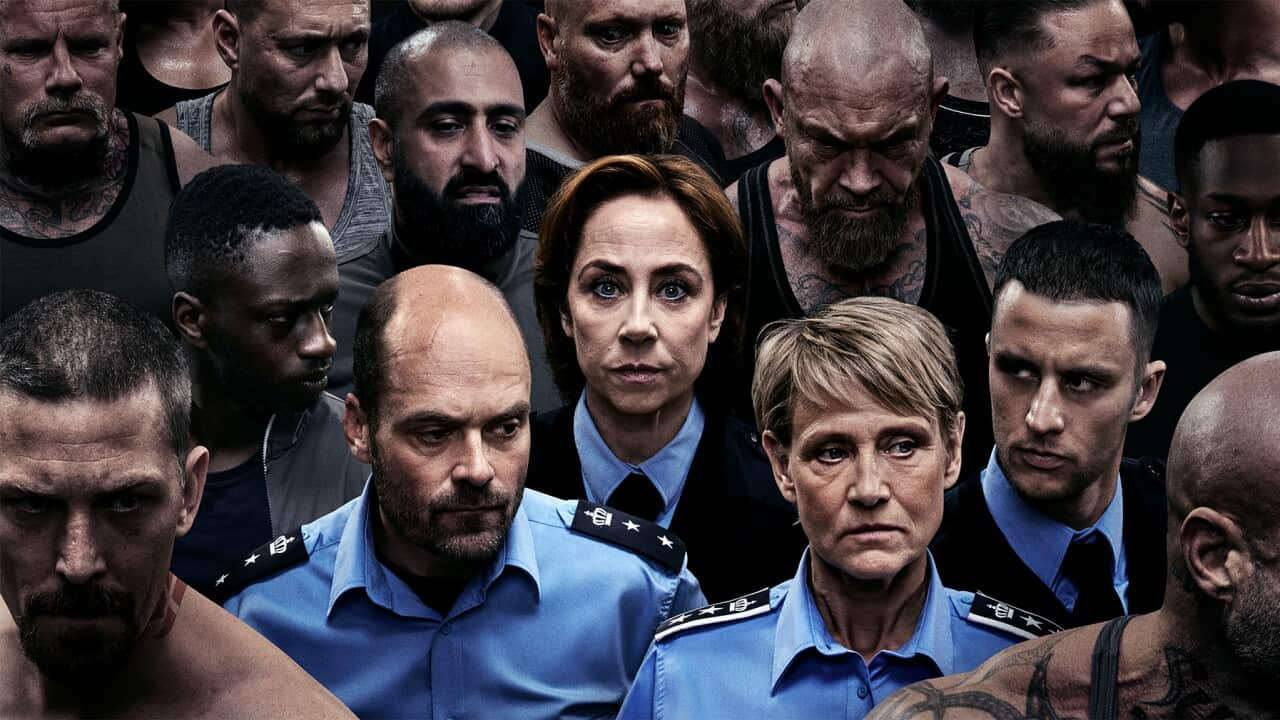What would happen if a seemingly stable country faced the prospect of having to evacuate all of its citizens?
In seven-part series Families Like Ours, that's the situation facing Denmark in a not-too-distant future. Rising water levels as a result of climate change have reached the point where there is only one, previously unthinkable, option. The entire country must be evacuated. Property becomes worthless. Some citizens can afford to travel to affluent countries but others will have to depend on government-funded relocation to other destinations. Families and friends are torn apart. Who will struggle and who will find a way to make a new beginning?
"What would happen to people from my own life? Who would fit into my 'lifeboat'? Where would we go?," says Danish director Thomas Vinterberg (whose stellar CV includes The Hunt, Far from the Madding Crowd, and the film for which he won an Academy Award, Another Round) of the thoughts this scenario provoked.
"What if our country as we know it was to be evacuated? If, slowly but steadily, the population of our well-functioning civilised society was to be divided in two: those who can finance their own fare and those who depend on welfare. What would happen to ourselves and our families? What would it feel like to be refugees on the outside? How would we cope? If it was our turn to say goodbye to all we know and take for granted? How strong is our love for the homeland once we are forced to leave it? How strong is our solidarity?"
Difference choices, different experiences
At the centre of Families Like Ours is Laura (Amaryllis August, making an impressive acting debut), a happy, intelligent high school student from a wealthy Copenhagen suburb. She lives half the time with her mother Fanny (Paprika Steen) and half with her father Jacob (Nikolaj Lie Kaas) and his new wife Amalie (Helene Reingaard Neumann). At school, there's a flirtation with fellow student Elias (Albert Rudbeck Lindhardt). As the news of the evacuation spreads, others also face hard choices as the nation prepares to leave, including Fanny's brother Holger (Thomas Bo Larsen), Nikolaj (Esben Smed) the deputy head of the Migration office at the Ministry of Ministry of Foreign Affairs, his partner Henrik (Magnus Millang) and Henrik's brother Peter (Prisoner star David Dencik).
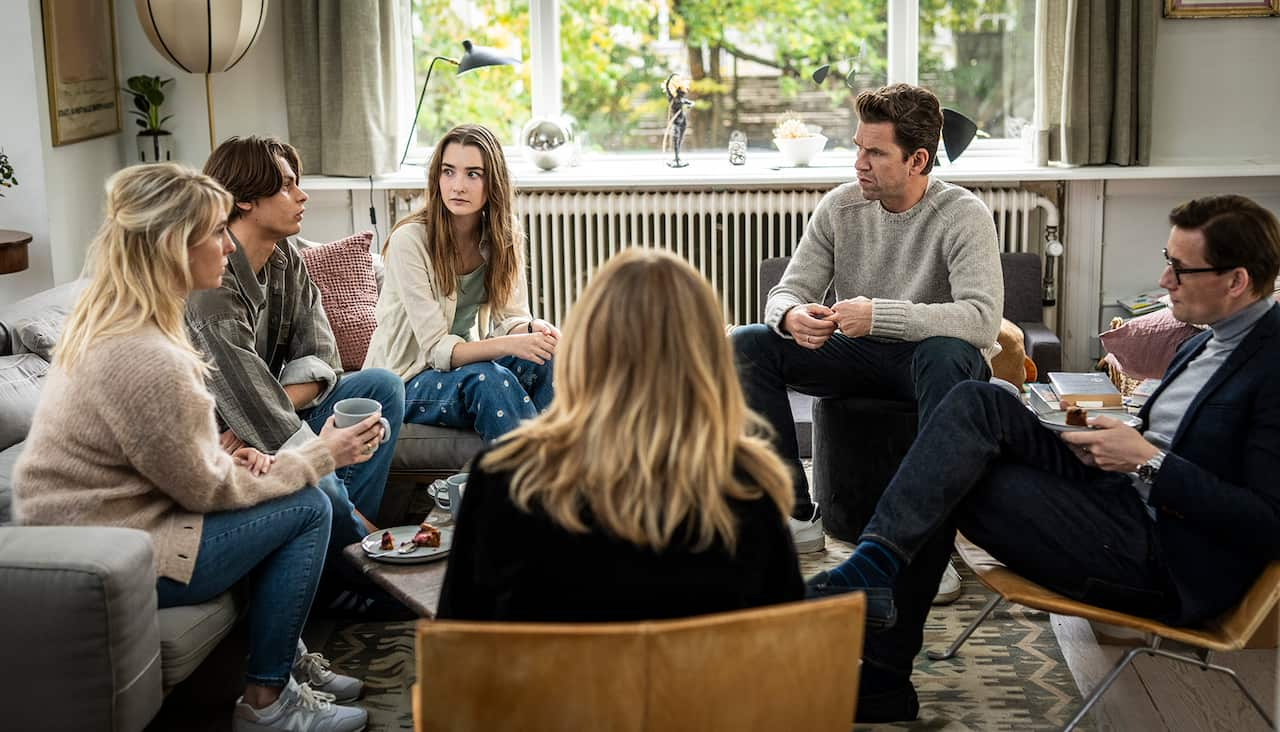
(L-R) Amalie (Helene Reingaard Neumann), Elias (Albert Rudbeck Lindhardt), Laura (Amaryllis August), Fanny (Paprika Steen), Jacob (Nikolaj Lie Kaas) and Nikolaj (Esben Smed) gathered for a family meeting. Credit: Per Arnesen / Zentropa Entertainments
"The story is set in a reality that much resembles our own ...In focusing deeply on individual characters, the world feels huge, irrational, and wonderful all at the same time. Families are shattered to pieces and new lives emerge. Love blooms as unexpected reunions and reconciliations take place.
"Resonance is important. The close psychological drama is important. It is not a tale of disaster or of nature’s revenge on mankind, but an examination of human themes: farewells, separation, and survival. ... At worst, a look into the future. At best, an expression of our shared fears and reflections of what we all want to hold on to."
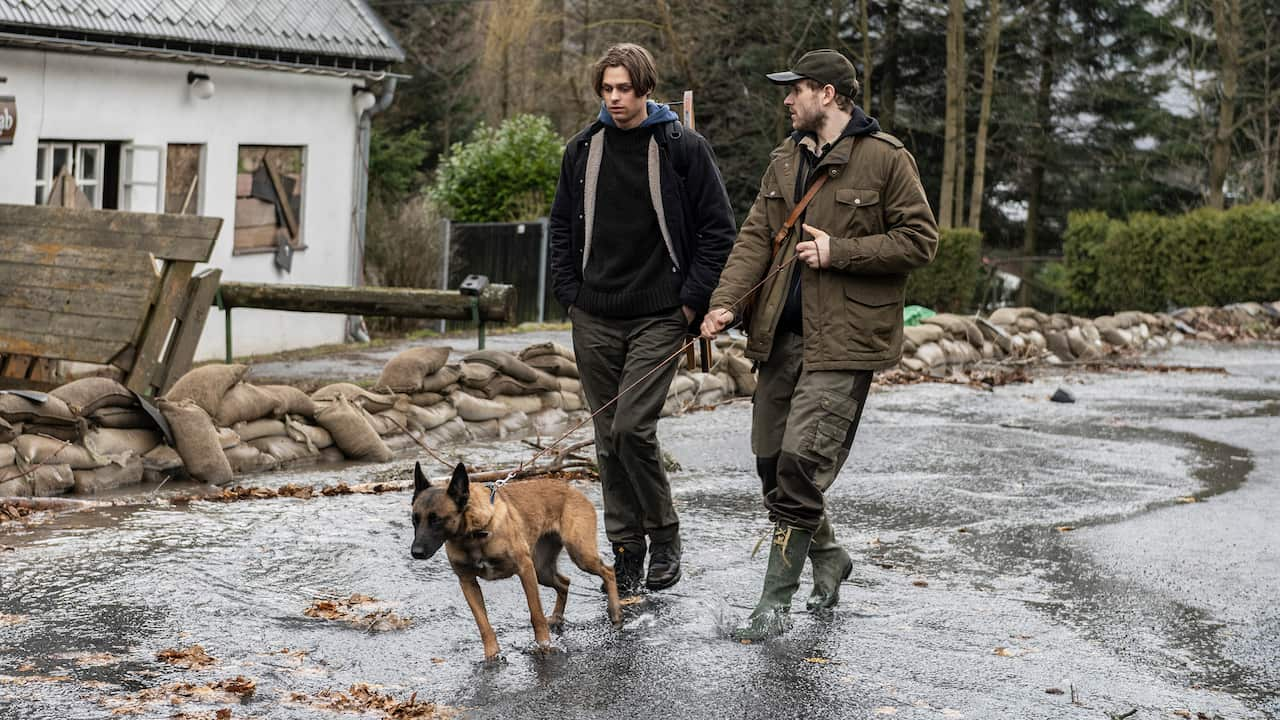
Elias (Albert Rudbeck Lindhardt) walks with Bartek (Stanislaw Linowski) in 'Families Like Ours'. Credit: Julie Vrabelova / Zentropa Entertainments
The idea came to him in late 2018.
“It was a Sunday and I was bored,” he says. “I was missing my family, thinking about my children and their generation and the world they’re growing up in – their perception of it and their sense of responsibility for all of it. Then this thought experiment began.” As he considered the rapidly changing planet, contending with drought, hurricanes, floods, he started to wonder what today’s teenagers might encounter in their lifetimes. Then the premise of the show struck him. “What would happen if we had to evacuate our country?”
Vinterberg’s home country, Denmark, has been experiencing higher levels of rain in recent years. He pondered what could happen if that rain didn’t stop, if the flooding got so bad that it never went away. How long could people continue to live there?
As he did some preliminary writing with Bo Hr, Hansen, the pair realised the story was too big for a film, which lead to Vinterberg taking on his first television project.
I couldn’t fit it into a feature film. I thought now was the chance to try television.
“I’ve definitely considered television before,” Vinterberg says. “When I made my film Festen, I remember the sort of sad feeling of ending the shoot with all these characters and actors – this family that I’d really enjoyed spending time with. I had a lot more to tell about them. That’s when I first felt a desire to make a TV series. I wanted to further unfold this slice of life we’d made.” He laughs. “Then a lot of years went by and a lot of films happened.”
As he thought about the characters in his plan for Families Like Ours, “I couldn’t fit it into a feature film. I thought now was the chance to try television.”
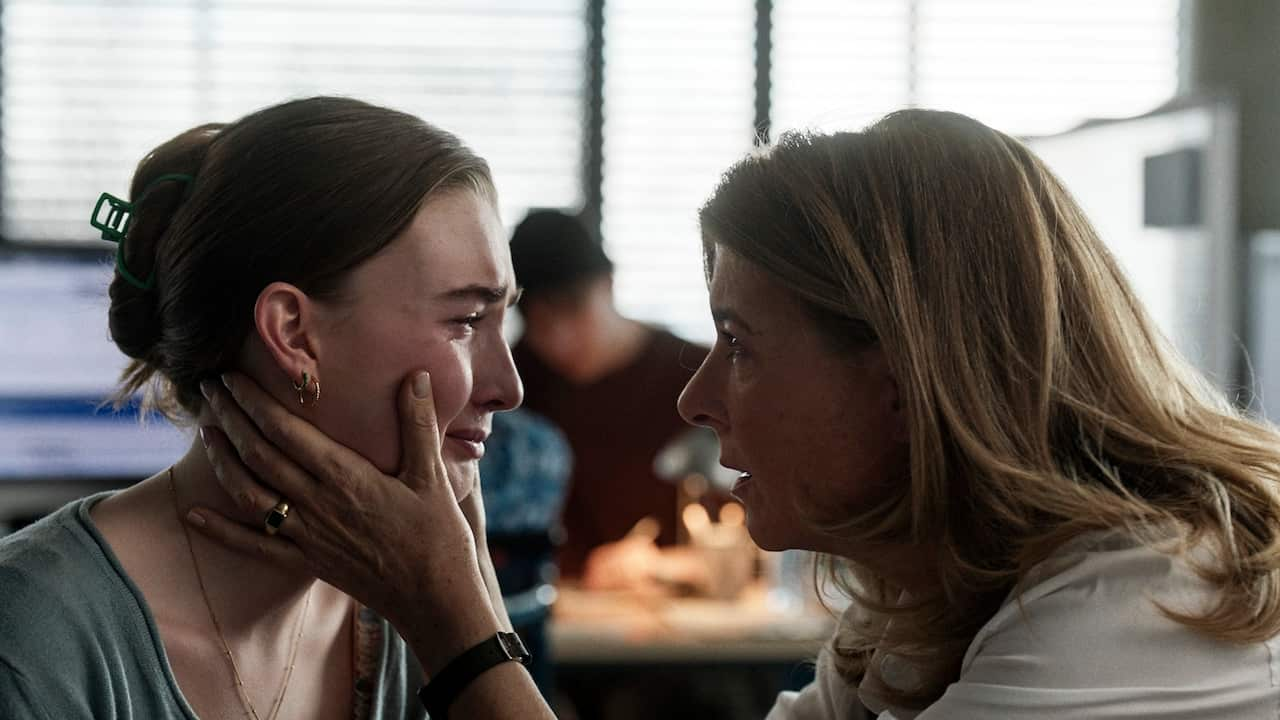
Laura (Amaryllis August) with her mother Fanny (Paprika Steen). Credit: Sturla Brandth Grøvlen / Zentropa Entertainments
A story across borders
The international nature of Families Like Ours took Vinterberg and his cast and crew to five different countries, for a shoot that lasted almost a year.
When the people of Denmark are told they’re going to be evacuated, those with money and connections are able to pick and choose where they go, but many are sent to Romania to live with strangers in crowded rooms. As the show’s characters are split, trying to find new homes as comfortable as those they left behind (and rarely succeeding), the action travels across Europe. Shooting took place in Denmark, Romania, France, Sweden and the Czech Republic (the UK and Poland are also depicted but were not shooting locations).
“It was a constant learning process and a very humbling one,” says Vinterberg. “You have to come from a very curious place and do lots of research. You don’t want to do an outsider’s version of showing these places.” Events take characters to Paris, where they experience both the most luxurious side of the city and the polar opposite; and sequences in Poland where deserted towns and stern military are encountered. “How do you properly dig into Parisian life? What does a shabby Parisian hotel look like? And when you meet Polish soldiers, what would they be like? How would they behave with a young refugee? There was so much research.”
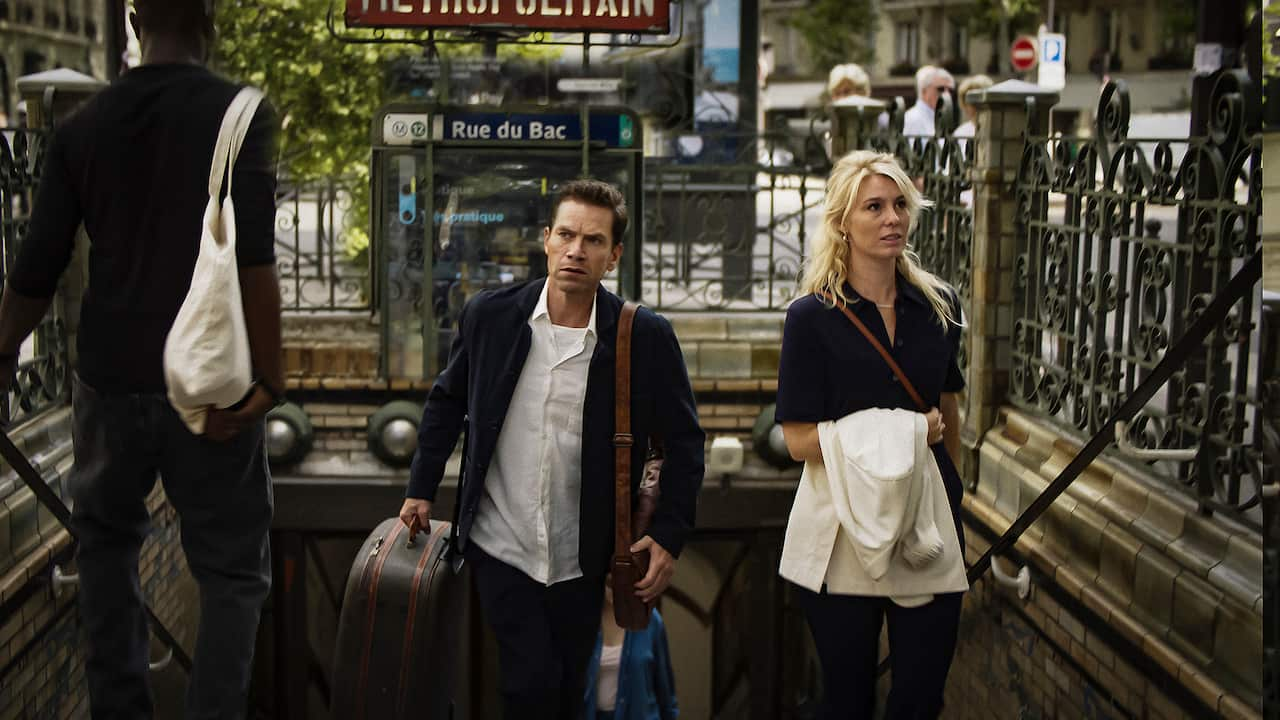
Jacob (Nikolaj Lie Kaas) and Amalie (Helene Reingaard Neumann) arrive in Paris. Credit: Manuel Clkaro / Zentropa Entertainements
The series includes some of the largest scale sequences Vinterberg has ever directed. One breathtaking scene has Laura desperately racing through the streets of Copenhagen to get to her mother. The city is overwhelmed by thousands of citizens trying to escape, and people protesting against the evacuation. Another takes place on the dock next to a huge refugee ship transporting countless refugees to a new life overseas. The scale didn’t faze Vinterberg.
“I have to say, it’s a lot harder making a small movie,” he says. “On a huge production day, with lots of extras and all sorts of stuff going on, there are a lot of people there to help you do your job. On a small film you basically have to do everything yourself, so in some ways working on a large scale is easier.” The challenge was in maintaining the intimacy of his narrative on a bigger canvas. “The thing I’m always focused on is how the story comes through. Even when there is a lot going on around the character, it has to still be all about the character and what they’re experiencing.”
Even after all these years, every film shoot is nerve-wracking ...There’s always fear.
Part of the reason none of the scale, or globe-hopping, intimidated Vinterberg is because this is the part of filmmaking he loves: the leap into the unknown and figuring out things that initially seem impossible. “Even after all these years, every film shoot is nerve-wracking,” he says. “There’s always fear. Will I achieve my ambitions? Will I get everything we need on the day? There are always obstacles and always worries, but you surround yourself with great people, you shoot, and you get creative. There are times when you think your head is going to explode from all the decisions, but you find ways over every obstacle, you make decisions in the moment that suddenly make everything better. You find new moments you could never have planned for. "
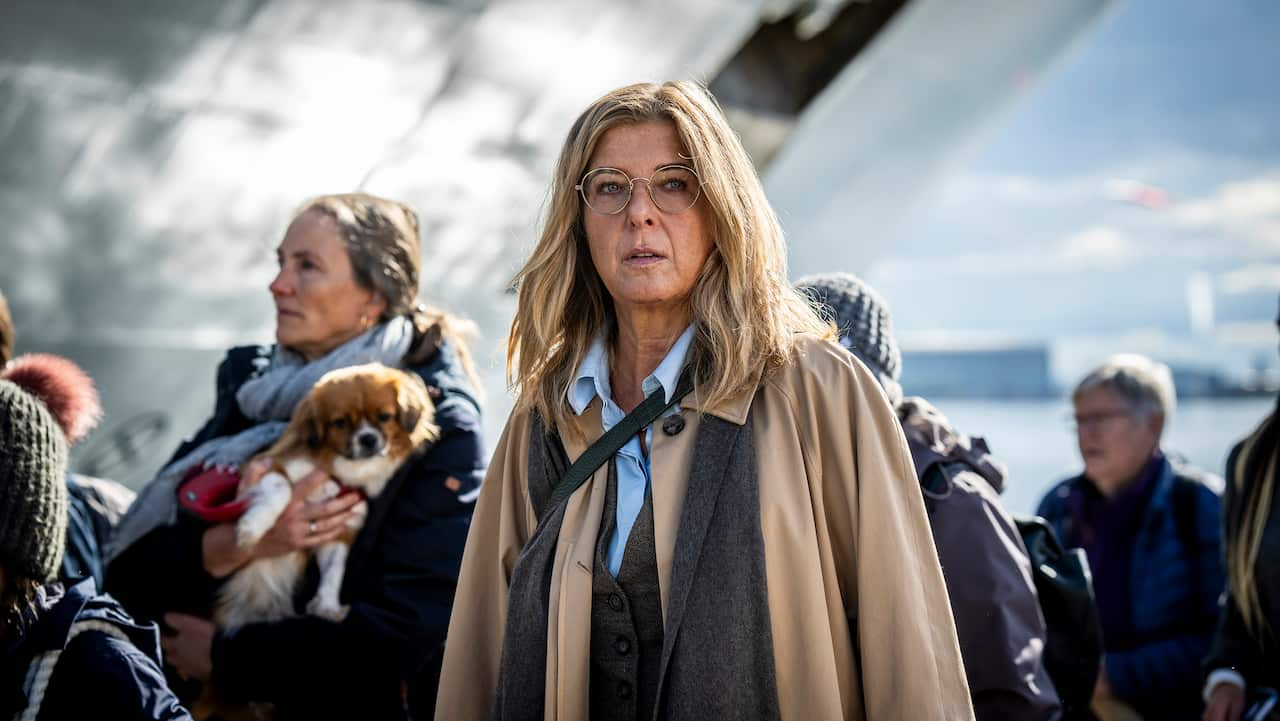
Paprika Steen in 'Families Like Ours'. Credit: Per Arnesen / Zentropa Entertainments
Hope, always
As much as this is a story of incredible drama and people living through unthinkable horrors, it is also about hope and compassion. Vinterberg seeks to ask questions about different relationships. How do we behave as communities and nations when other people are facing disaster, and how far can our family bonds stretch?
“I didn’t start this as an environmental shout-out,” says Vinterberg. “This is about asking existential questions. What happens if only a finite number of people can fit in the lifeboat? Who will you allow in? And what happens to those of us from privileged Western societies when we become the refugees? This isn’t about being political. It’s about what’s happening to all of us.”
“This story is a lot about love," he says. "...“But I think the main theme of it, which only came through while I was working on it, is that this is about resilience. Human beings have an incredible ability to adapt, even in the worst circumstances. I think there’s such dignity in that. And hope. In resilience there is hope.”
This is an edited version of material supplied by Zentropa Entertainments / Studiocanal.
Families Like Ours is streaming at SBS On Demand.
Thomas Vinterberg's award-winning film Another Round is also streaming at SBS On Demand.
Stream free On Demand

Another Round
